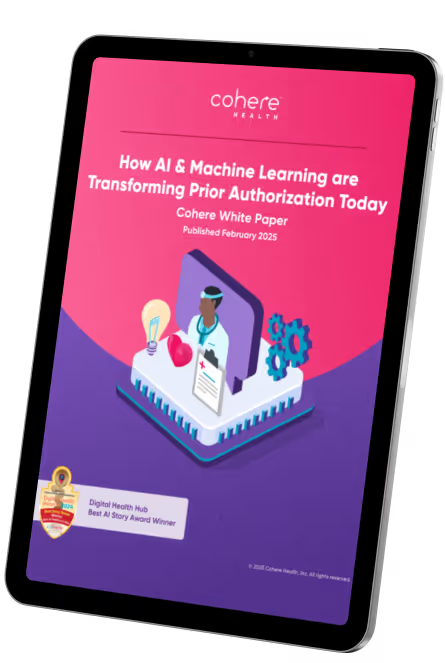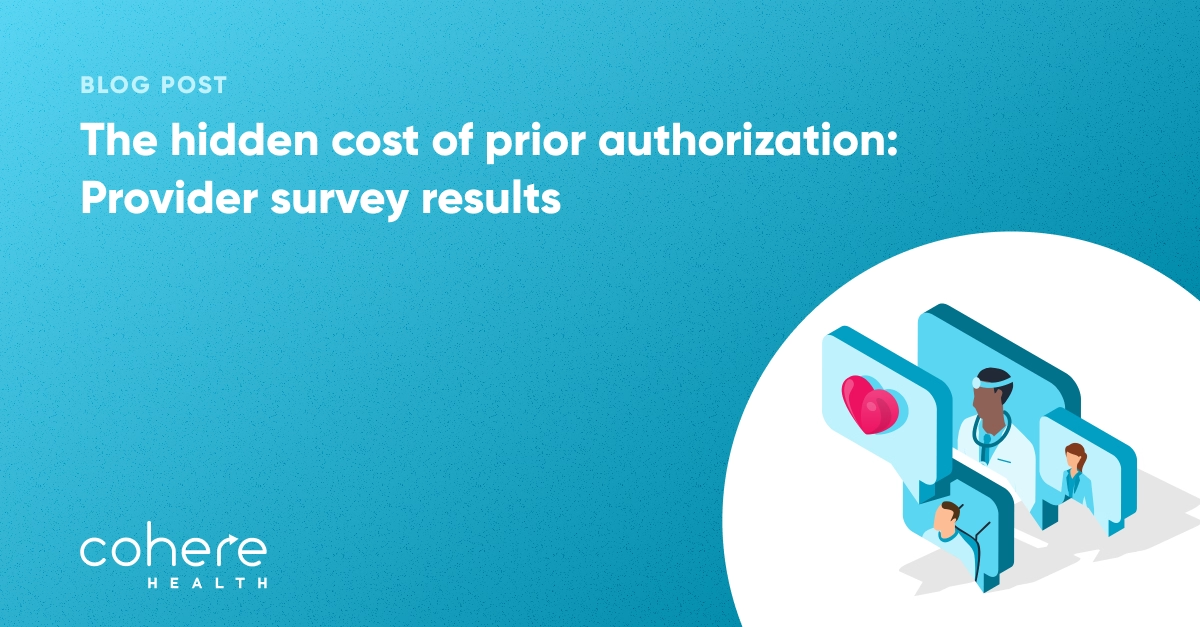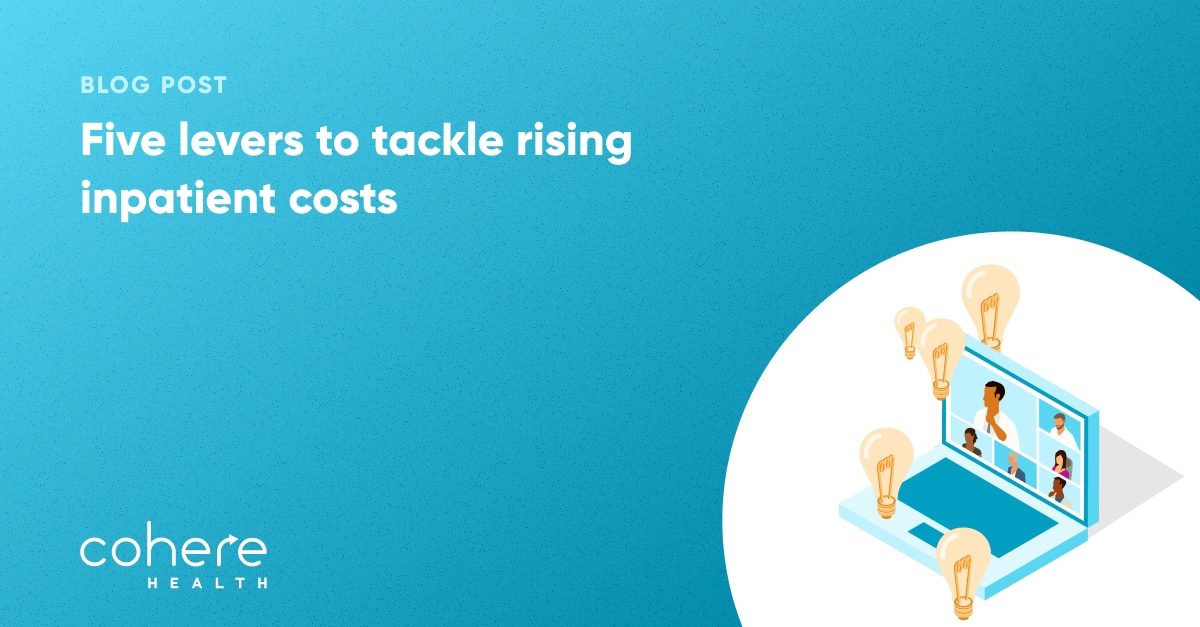What health plans need to know about AHIP’s prior authorization commitments
Published:
November 13, 2025

The health insurance industry has entered a new phase of prior authorization reform. Led by AHIP, more than 60 health plans recently pledged to streamline and simplify the prior authorization (PA) process—aligning with commitments from HHS and CMS to reduce administrative burden, improve transparency, and accelerate access to care.
These AHIP commitments represent a pivotal moment for health plans. They not only signal alignment with the 2026 CMS Interoperability and Prior Authorization Final Rule (CMS-0057-F) but also establish shared, measurable goals that will redefine how payers and providers collaborate.
More than 60 health plans have committed to:
- Standardize electronic prior authorization (ePA) using FHIR®-based APIs by January 1, 2027
- Reduce the scope of services subject to PA by January 1, 2026
- Ensure continuity of care when patients change plans
- Enhance communication and transparency around determinations
- Expand real-time responses to support faster decisions
- Maintain medical review for non-approved requests, ensuring clinical oversight remains central
Together, these initiatives aim to make healthcare simpler, data-driven, and more efficient for providers and members.
Why this matters for health plans
While these commitments closely align with federal interoperability mandates, they also offer health plans a strategic opportunity to modernize their utilization management operations.
Standardized electronic workflows and real-time decisioning provide pathways to:
- Streamline operations and reduce administrative burden.
- Improve provider collaboration and satisfaction.
- Accelerate access to care for members.
- Align prior authorization with broader value-based care goals.
Providers consistently cite prior authorization as one of the most significant administrative burdens. Health plans that embrace these changes can reduce delays, improve transparency, and strengthen trust—transforming PA from a bottleneck into a strategic differentiator.
Preparing for the shift
To maximize these opportunities, plans should assess and address potential downstream impacts as they prepare to streamline PA.
Key considerations include:
- Health plan integration: FHIR® APIs work effectively only when integrated with existing utilization management systems, many of which are siloed or not fully FHIR-compliant.
- Provider support: Many providers lack the resources to manage API integrations by the deadlines. Plans should consider how they will support providers in submitting requests electronically, checking coverage requirements, and providing complete documentation. Supporting providers effectively is critical to driving adoption of these new systems, which in turn will determine the success of transforming PA.
- Policy management: Medical policies form the backbone of every authorization decision. To support AHIP commitments, plans need a FHIR-ready version of the clinical criteria for DTR workflows and a publicly published, human-readable policy for providers and patients. Digitizing and maintaining these outputs ensures that automated workflows and public guidance are consistent, accurate, and actionable.
Without addressing these elements, health plans risk achieving compliance without realizing efficiency.

How Cohere Health is leading the way
Cohere Health has been actively involved in shaping interoperability standards through the Da Vinci Project Steering Committee, advancing FHIR implementation guides critical to seamless data exchange. Our Unify™ platform already supports FHIR-based electronic PA across in-house, delegated, and API offerings, and we have delivered more than 9 million FHIR API-enabled authorizations to date.
Starting from the foundation, Cohere Health digitizes and centralizes medical policies (NCDs, LCDs, and proprietary policies) to create the code-ready, structured policy assets required for DTR workflows and downstream operations. Our policy management solution automates policy ingestion, helps your policy team collaborate with built-in version control, and ensures the same policy logic powers decisions from UM to claims. As a single source of truth, it powers transparency through simple distribution to provider portals and public, searchable websites.
To simplify submissions, we offer a SMART® on FHIR app launched from the provider EHR, helping providers capture accurate documentation at the point of submission—without relying on error-prone questionnaires. Coupled with policy digitization and continuous updates, our approach ensures faster, more accurate, and clinically precise determinations while maintaining complete oversight.
A strategic moment you shouldn’t miss
The AHIP commitments signal a new phase for prior authorization—one in which technology, clinical expertise, and standardized processes converge to improve speed, accuracy, and the provider experience. Health plans that approach this transformation strategically can not only meet upcoming mandates but also unlock new operational efficiencies and stronger relationships with their provider networks.
Learn more about these commitments and how to prepare your organization for 2026. Download the “Guide to Meeting AHIP Prior Authorization Commitments” to build a roadmap for success.
Available For Download
Written by

Cohere
Health
Cohere Health’s clinical intelligence platform delivers AI-powered solutions that streamline access to quality care by improving collaboration between physicians and health plans. Cohere works with 660,000 providers and processes millions of prior authorization requests annually. Its AI auto-approves up to 90% of requests for millions of health plan members. Cohere has been recognized in the Gartner® Hype Cycle™ for U.S. Healthcare Payers in 2024 and 2025, named a Top 5 LinkedIn™ Startup in 2023 and 2024, and is a three-time KLAS Points of Light award recipient.
Stay ahead with expert insights on transforming utilization management and payment integrity—delivered straight to your inbox.



